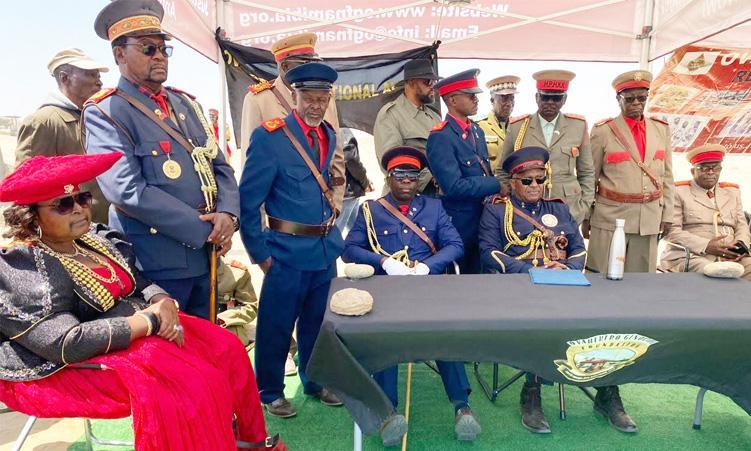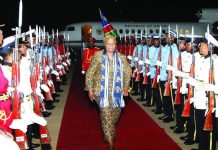Africa-Press – Namibia. THE Ovaherero and Nama communities have rejected 28 May as Genocide Remembrance Day, citing historical inaccuracy, exclusion, and continued calls for restorative justice.
The day was declared a public holiday by the Cabinet last year.
This comes after the Cabinet endorsed the contents of a letter submitted by retired speaker of the National Assembly Peter Katjavivi, dated 18 March, asking that 28 May be adopted as Genocide Remembrance Day.
Nandiuasora ‘Nandi’ Mazeingo, chairpeson of the Ovaherero Genocide Foundation, yesterday said the Ovaherero people, and specifically the Ovaherero Traditional Authority, are not boycotting anything.
He said the government is imposing 28 May on his community, thereby boycotting their “dates, history and own lived experiences and memories”.
“We remember 2 October 1904 to be the date on which the ‘genocidal intent’ to wipe us off the face of the earth was pronounced, and so had consciously elected it to be the date on which we formally remember the genocide we barely survived,” Mazeingo said.
He said the community continues to be haunted by continued displacement, landlessness, being exiled, impoverished and marginalised.
“Any other creation sponsored by an entity(ies) other than ourselves is not ours, is not for us. We, therefore, do not and will not have any part in it,” he said.
Executive director of information and communication technology Audrin Mathe has confirmed that the commemoration will take place at Parliament Gardens in Windhoek next week.
Landless People’s Movement human rights desk representative Joyce Muzengua says a significant faction of the Nama and Herero community is expressing discontent with the government’s chosen date for Genocide Remembrance Day.
“There is an anticipated boycott from these communities, who advocate for the commemoration to be aligned with historically relevant dates, such as 12 April, marking the issuance of the first order for the Nama genocide, and 2 October, which denotes the issuance of the annihilation order against the Hereros,” she says.
Muzengua says the context of the date was inspired by the history of the Jews, specifically marking the closure of concentration camps and symbolising the end of the Holocaust for the Jewish community.
She says the Herero and Nama people perceive this date as lacking relevance to their own historical trauma.
Muzengua says the shutting down of concentration camps signified the beginning of a prolonged and arduous battle for restorative justice, which has persisted for seven decades.
Chief Tjinaani Maharero of the Maharero Royal House recently says his ancestors suffered immensely, and having this day officially recognised by the government was significant.
“It’s a sensitive day that will evoke painful memories,” he says. Retired executive director of information and communication technology Mbeuta Ua-Ndjarakana describes the event as politicised.
“This day should be a platform for descendants of genocide victims to renew their demands for restorative justice, genuine reparations, and the reconstruction of what was destroyed,” he states.
Nama Traditional Leader Association secretary Sima Luipert yesterday said she was not aware of any boycott and that the Nama chief would pronounce himself at a conference yet to be confirmed.
For More News And Analysis About Namibia Follow Africa-Press






